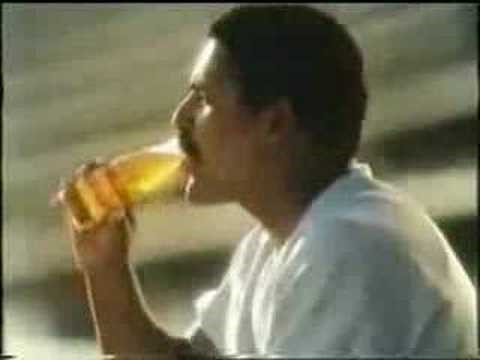
The brand that got better
The sale of Lucozade and Ribena to Suntory got me thinking about the two brands again, and in particular just what a great story the re-positioning of Lucozade is.
To “older” readers it is probably well-known, but to any younger readers who may have always grown up with Lucozade as an energy drink it may well not be so well known…which gives me an excuse to re-tell it now.
“Glucozade” was first manufactured in 1927 by William Owen, a chemist from Newcastle who had experimented for years trying to provide a pleasant-tasting, easy-digestible source of energy for those who were sick with common illnesses, like colds or the flu.
It initially became available throughout Britain for use in hospitals under the name Glucozade packaged in glass bottles and covered in cellophane.
The name changed to Lucozade in 1929, and Beecham’s acquired the product in 1938. By the early 1950s, Lucozade now available to everyone was the source of half of the company’s profits.
During the 1950s, 60s and 70s Lucozade used heavyweight national advertising support depicting how it ‘aids recovery’ and was the nicest part of being ill. One famous ad showed two mums discussing how it was “better” (quieter and easier) for them when their children were ill, but now that Lucozade had aided their recovery the children were back to the noisy, boisterous selves.
As the 1980s arrived and as a result of increased advertising regulations and the desire to try and appeal to a broader audience, the brand was initial re-positioned as a drink to get you through “the ups and downs of the day”. The move wasn’t a great success and the brand went into decline.
So it was in 1982 that the brand went through a second, and what was to become one of the most famous re-positioning of its time.
What the Lucozade team recognised was that the core of the brand was energy, not illness, and that energy was important to everyone, not just people who are ill. So what the brand team and their advertising agency O&M did was stand the old positioning on its head – Lucozade wasn’t energy for ill people, it was energy for well, fit people
They needed a new brand ‘spokesperson’ and their choice was the complete opposite of the traditional sick child. It was Olympic athlete (and soon to be gold medal winner and world record holder in the decathlon) Daley Thompson.
From inane, bland pop tunes the brand had previously used, the first ad to feature Daley Thompson was accompanied by a high energy song from heavy metal brand Iron Maiden.
It showed Daley, a fit man in his prime, training hard and so needing and using Lucozade on what appeared to be a daily basis. In the era of new fitness regimes and the body beautiful (think Jane Fonda’s Workout 1982 and Arnold Schwarzenegger in Terminator 1984), it was a timely move and the brand quickly went back into growth.
Between 1984 and 1989 UK sales tripled. The brand was certainly getting better